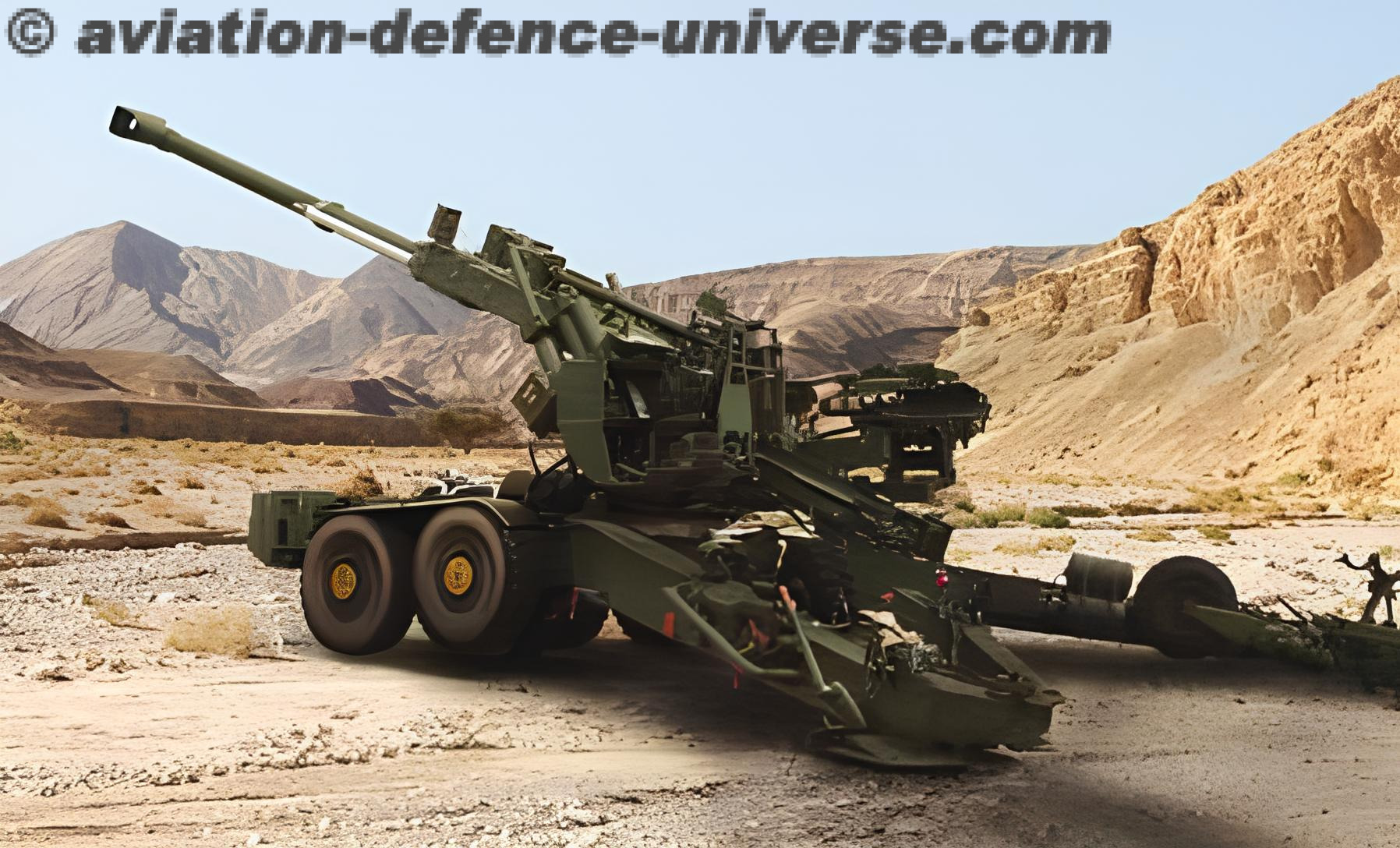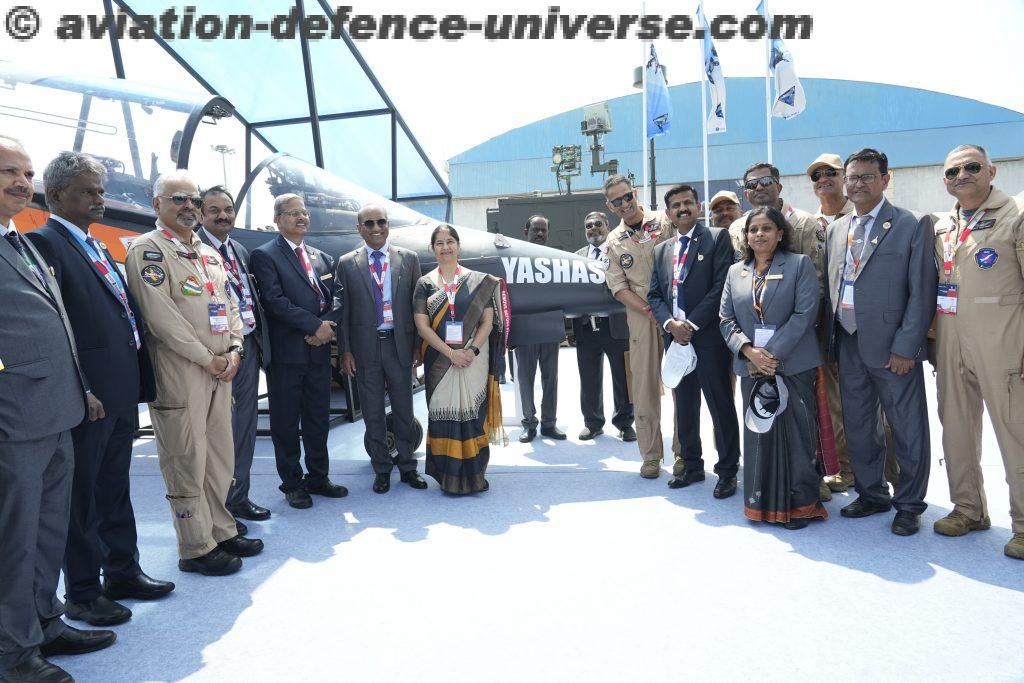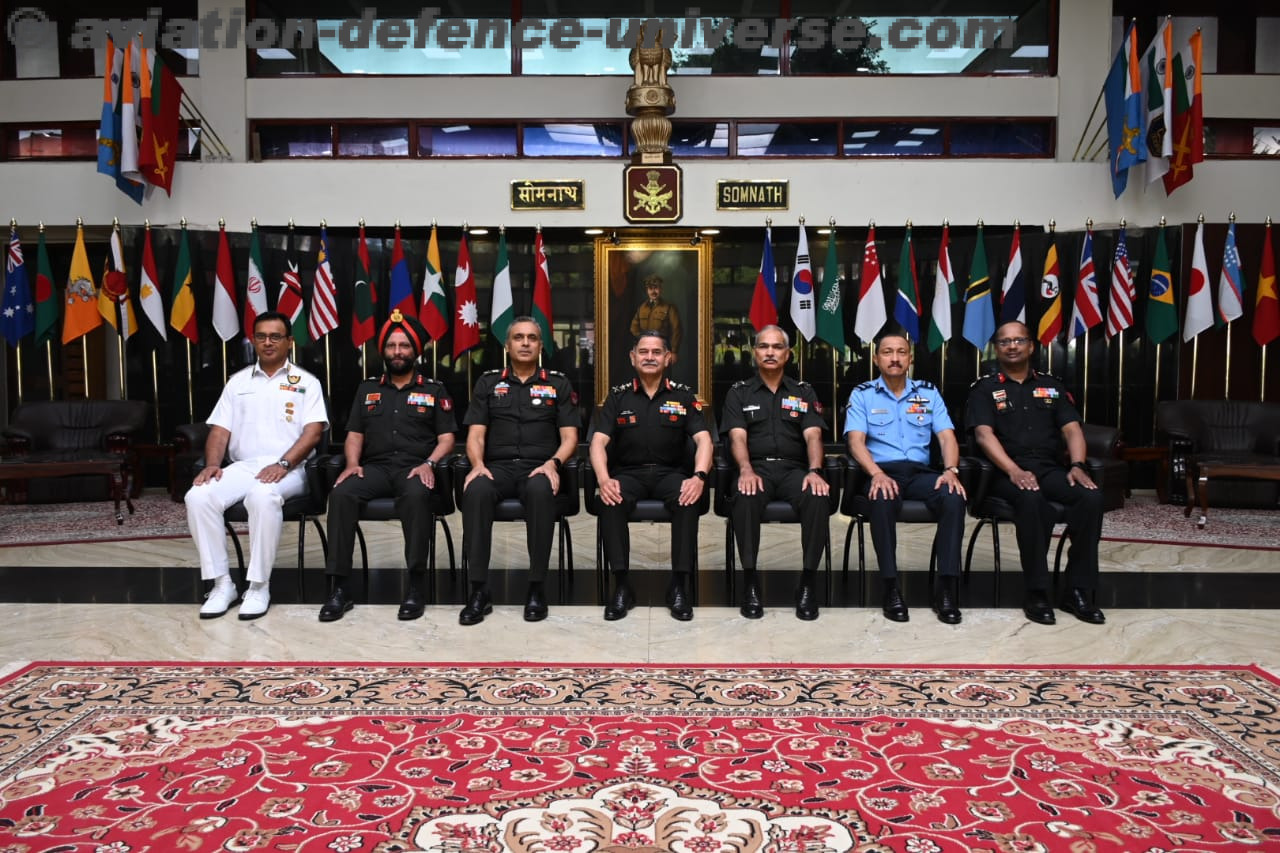- Ambassador to India hosts the celebrations
By Sangeeta Saxena
New Delhi. 21 May 2024. “The Hungarian Defence Forces were born in the war of independence in the middle of the 19th century. Today’s Hungarian soldiers draw strength from our past heroes’ bravery. The peace and security of Hungary are guaranteed by its own professional defence forces and NATO. Our country is committed to its National Defence and Armed Forces Development Program,” said a formal statement on Hungary’s Ministry of Defence video release this morning. At the height of the 1848–1849 revolution’s spring military campaign, on May 21, 1849, Hungarian troops successfully retook Buda Castle following a three-week siege. Since 1992, the country has celebrated the Hungarian Armed Forces on May 21 to honour this occasion.
On Saturday, 18 May 2024, the Hungarian Embassy and the Defence Attaché Office observed Hungarian Defence Forces Day at the Ambassador’s residence. Attending the reception were representatives of the Indian Armed Forces , foreign defence attachés and members of the media. Lt. Col. Laszlo Kovari gave the opening remarks, and then H.E. István Szabó, the Hungarian ambassador, gave a speech welcoming the evening’s guests. Paintings of Hungarian military equipment were on display, both in the reception foyer and inside.
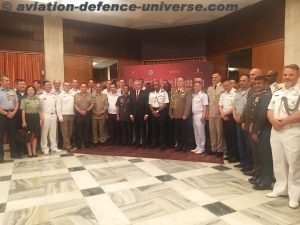 Hungary’s strategic goal is to build up the Hungarian Defence Forces by 2030, in order to become a significant military force in the area that, as a NATO member, can guarantee national security, thwart potential aggression, assist the government in its joint defence of the nation against military and non-military threats and challenges, and fulfil its obligations as an Alliance and EU member. Zrínyi HHP offers the necessary structure to accomplish this. Being the primary defence industrial hub of the area is a national strategic priority goal for Hungary, to be carried out concurrently with the implementation of the comprehensive programme.
Hungary’s strategic goal is to build up the Hungarian Defence Forces by 2030, in order to become a significant military force in the area that, as a NATO member, can guarantee national security, thwart potential aggression, assist the government in its joint defence of the nation against military and non-military threats and challenges, and fulfil its obligations as an Alliance and EU member. Zrínyi HHP offers the necessary structure to accomplish this. Being the primary defence industrial hub of the area is a national strategic priority goal for Hungary, to be carried out concurrently with the implementation of the comprehensive programme.
Complementary pillars form the basis of the nation’s military security. Modern national armed forces are one pillar, which is supported by higher level defence systems and regional cooperation initiatives. The common security and defence policy of the European Union , which includes the mutual assistance clause, as well as the cooperation fora within the United Nations and the Organisation for Security and Cooperation in Europe , constitute the second pillar of the military dimension of Hungarian security.
Ensuring building security is a long-term project that calls for long-term funding. Hungary feels it needs to begin preparing today for the threats of tomorrow. In addition to the military component, a nation’s defence is based on intricate and interconnected security components that include social, political, economic, environmental, cyber, and information aspects. Since state and non-state threats and challenges can arise in a variety of ways across the whole range of these security dimensions, defence cannot be addressed in a vacuum from other security-related issues. While military capabilities will continue to be crucial in carrying out home defence tasks, addressing security challenges requires cross-governmental cooperation and goes beyond the purview of individual sector ministries. Considering the foregoing, the Defence Strategy’s purview will encompass all defence-related endeavours and establishments engaged in national defence and supplying capacities associated
 Hungary needs to be ready for hybrid threats, kinetic and non-kinetic attacks, and other emergency scenarios that could put the country and its citizens in danger in the complex and unpredictable security environment of today. In order to resist attacks, prevent, lessen, and manage their effects, as well as to keep vital functions operating, it is necessary to strengthen national resilience. The improvement of the Hungarian national economy’s performance, along with the capabilities of the country’s defence industry, both work together to fortify national security and resilience.
Hungary needs to be ready for hybrid threats, kinetic and non-kinetic attacks, and other emergency scenarios that could put the country and its citizens in danger in the complex and unpredictable security environment of today. In order to resist attacks, prevent, lessen, and manage their effects, as well as to keep vital functions operating, it is necessary to strengthen national resilience. The improvement of the Hungarian national economy’s performance, along with the capabilities of the country’s defence industry, both work together to fortify national security and resilience.
Determining a high degree of resilience lowers the possibility of an attack, strengthening our deterrent power. Additionally, by coordinating military, law enforcement, and civilian operations, it fortifies the nation’s defence and enhances society’s ability to prevent threats, dangers, and attacks, manage the fallout from them, and quickly return to normalcy. Therefore, the Hungarian Defence Forces need to be able to defend and guard vital infrastructure and facilities essential to national defence, increase national resilience through military capabilities , take action against conventional and hybrid threats; and support and collaborate with civilian and law enforcement agencies in their efforts.
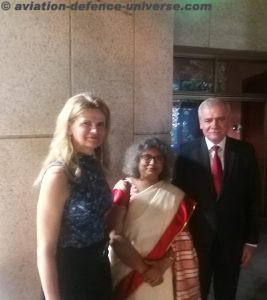 In order to obtain information about military operations, predict crises that could affect Hungary’s security, uncover covert efforts endangering Hungary’s defence interests, or protect soldiers serving in conflict zones, there is a growing need for military intelligence and counterintelligence agencies to operate efficiently. Future national security tasks supporting defence should also prioritise the targeted development of strategic cooperation with domestic partner services, NATO and EU Member State intelligence and counterintelligence organisations, and other relevant parties, primarily taking into account current challenges.
In order to obtain information about military operations, predict crises that could affect Hungary’s security, uncover covert efforts endangering Hungary’s defence interests, or protect soldiers serving in conflict zones, there is a growing need for military intelligence and counterintelligence agencies to operate efficiently. Future national security tasks supporting defence should also prioritise the targeted development of strategic cooperation with domestic partner services, NATO and EU Member State intelligence and counterintelligence organisations, and other relevant parties, primarily taking into account current challenges.
The effectiveness of operations carried out by the Allied and Hungarian Defence Forces within Hungarian territory is largely dependent on the assistance provided by non-military civilian capabilities. Furthermore, in many crisis situations, military support for the civilian sector may also prove necessary. In order to achieve a high degree of national resilience, the Hungarian Defence Forces and civilian actors in society must be equipped to perform such mutual assistance tasks already during peacetime, primarily within the framework of civil preparedness.
 The nation’s defence system is responsible for civil preparedness tasks. Its goals are to maintain essential system components and government services (public administration), as well as to secure civilian resources to support NATO’s armed forces and the Hungarian Defence Forces. The system of defence administration is used to coordinate civilian readiness activities between the military and civilian sectors with the goal of enhancing and expanding national resilience. It must therefore be enhanced in a way that will enable the effective completion of any tasks resulting from these requirements.
The nation’s defence system is responsible for civil preparedness tasks. Its goals are to maintain essential system components and government services (public administration), as well as to secure civilian resources to support NATO’s armed forces and the Hungarian Defence Forces. The system of defence administration is used to coordinate civilian readiness activities between the military and civilian sectors with the goal of enhancing and expanding national resilience. It must therefore be enhanced in a way that will enable the effective completion of any tasks resulting from these requirements.
The well-trained and equipped soldiers and the civilians who support them are the cornerstones of the Hungarian Defence Forces. They are able to perform both domestic and foreign missions with the most recent equipment and knowledge. This can only be accomplished with the help of an effective, contemporary HRM system that supports the ongoing availability of committed, driven, and professionally trained staff while also accounting for the shifting requirements for force development-related strength numbers. Maintaining and adjusting the right personnel ratio while meeting the quota set by Parliament is another goal of personnel management.
 The ability of the Hungarian Defence Forces to conduct operations, even under challenging circumstances, is ensured by the command and control system, which is organised into a multi-layered integrated information network and supported by cutting-edge information communication and advanced cybersecurity capabilities.
The ability of the Hungarian Defence Forces to conduct operations, even under challenging circumstances, is ensured by the command and control system, which is organised into a multi-layered integrated information network and supported by cutting-edge information communication and advanced cybersecurity capabilities.
The development of combat, combat support, and combat service support capabilities for Land Forces will occur gradually, contingent upon the availability of incoming resources. A heavy, a medium, and a special purpose (light) brigade will be formed as a result, forming a three-brigade structure. Regarding combat support capabilities, the domains of engineering, communication and information systems, chemical, biological, radioactive, and nuclear (CBRN) defence, and reconnaissance are seeing the most significant advancements in terms of quality.
In order to protect the sovereignty of Hungarian and Allied airspace, the Air Force, which is a part of the NATO air command and control system, conducts air defence and air policing missions. It also provides support for the activities of Land Forces. The development of air defence, airspace control, and three air bases is necessary to guarantee the effective performance of the Air Forces’ missions.
 Through operations, including offensive ones, conducted in the cyber domain, cyber operation forces enhance the effectiveness of the Land and Air Forces’ kinetic operations. They actively participate in national cyber defence initiatives during peacetime and get ready for assignments that may come up in the event of an extraordinary legal order.
Through operations, including offensive ones, conducted in the cyber domain, cyber operation forces enhance the effectiveness of the Land and Air Forces’ kinetic operations. They actively participate in national cyber defence initiatives during peacetime and get ready for assignments that may come up in the event of an extraordinary legal order.
The establishment of suitable logistics and medical support capabilities is a necessary precondition for the successful completion of the entire range of tasks. As a result, a supply network-based medical and logistical capability that is partially deployable will be established. It will have the capacity to supply and equip them completely, deploy combat and combat support forces to operational areas, and guarantee the movement of forces within and between operational areas.
Hungary’s territorial integrity can be guaranteed and any aggressor with a similar size and potential will be thwarted by the combined arms structure, which also has the support of special operations forces and works in tandem with volunteer territorial defence forces.
The main source of superiority for the Hungarian Defence Forces will be its highly skilled workforce, which is sustained by ongoing technological advancements. The whole range of capability areas is covered by capability development. The collection and application of lessons learned from operations and exercises, defence research, operational and technological innovation, concept and doctrine development, as well as continuous analysis and evaluation of changes in the strategic environment, all support this.
 The goal of capability development is to logically enhance the Hungarian Defence Forces’ capabilities in combat, combat support, and combat service support. This makes soldiers more innovative and equipped with cutting-edge technology to improve their readiness, survival, and operational effectiveness. Therefore, the development of the national defence industry will concentrate on technological capabilities that will shape the nature of warfare in the future, including cyber defence, artificial intelligence, quantum computing, information technology, robotics, unmanned aerial vehicles (and counter-UAV technologies), non-lethal weapons, energy storage and alternative energy sources, nanotechnology, material technologies, and biotechnology.
The goal of capability development is to logically enhance the Hungarian Defence Forces’ capabilities in combat, combat support, and combat service support. This makes soldiers more innovative and equipped with cutting-edge technology to improve their readiness, survival, and operational effectiveness. Therefore, the development of the national defence industry will concentrate on technological capabilities that will shape the nature of warfare in the future, including cyber defence, artificial intelligence, quantum computing, information technology, robotics, unmanned aerial vehicles (and counter-UAV technologies), non-lethal weapons, energy storage and alternative energy sources, nanotechnology, material technologies, and biotechnology.
The Hungarian Defence Forces gradually increase the numbers and capabilities of the reserve forces and prepare them for carrying out their basic tasks in order to build a modern reserve force that can meet the security challenges and risks of our age and support the tasks of regular forces both in peacetime and in instances of extraordinary legal order. The outcomes of the previous period, achieved within the framework of the Zrínyi Programme, offer a solid foundation for guaranteeing that, by 2030, the system of voluntary reserves will consist of a single, cohesive unit with professional and contract personnel carrying out their duties, including sufficient reactions to novel challenges.
The protection of vital system components, force augmentation and supplementation, main supply and communication routes, and support for civilian authorities must all be strengthened in the context of developing rear area defence capabilities. The rear operations command will be able to supply military security in areas outside of operations in Hungary, in addition to its contribution to host nation support activities in Allied operations. Its operations will be concentrated on the following areas in particular defending designated critical system elements and preserving their operational capabilities, supporting military operations that are organised geographically or centrally through logistical support, helping to maintain public and legal order, preparing individuals who may be called into reserve forces and the armed forces; and carrying out augmentation and supplementation activities.
 In addition to improving the Hungarian Defence Forces so that it becomes an effective and modernly equipped force, a primary objective of the Zrínyi Programme is also to develop the Hungarian defence industry, and to make Hungary a significant regional centre in this regard. Force development provides opportunities for defence industry cooperation, which in turn facilitates the transformation of defence industry through technology transfer and the creation of production capacities. The building up of the Hungarian defence industry is indispensable for sustaining the success of force development over the long term. Maintaining and improving national defence industry capacities, along with the establishment of an independent defence industry research & development and innovation system are issues of strategic importance. This promotes flexibility, the credibility of defence, and the country’s overall resilience, and also contributes to easing defence economic and technological dependence on external actors within a short period of time.
In addition to improving the Hungarian Defence Forces so that it becomes an effective and modernly equipped force, a primary objective of the Zrínyi Programme is also to develop the Hungarian defence industry, and to make Hungary a significant regional centre in this regard. Force development provides opportunities for defence industry cooperation, which in turn facilitates the transformation of defence industry through technology transfer and the creation of production capacities. The building up of the Hungarian defence industry is indispensable for sustaining the success of force development over the long term. Maintaining and improving national defence industry capacities, along with the establishment of an independent defence industry research & development and innovation system are issues of strategic importance. This promotes flexibility, the credibility of defence, and the country’s overall resilience, and also contributes to easing defence economic and technological dependence on external actors within a short period of time.
 The implementation of the Zrínyi Programme is facilitated by the related industry development programmes, which is why close cooperation between ministries responsible for national defence and industry development is of utmost importance. To ensure the development of the defence industry, the economic situation of its respective actors must be stable. For this purpose, the Government supports the defence sector through the competent Ministry, by using targeted economic measures and financial incentives , to facilitate the domestic manufacturing and maintaining of modern military equipment, and create the necessary manufacturing capacities, to promote technological changes needed for the functioning and servicing of new equipment; and finally to provide professionally trained personnel.
The implementation of the Zrínyi Programme is facilitated by the related industry development programmes, which is why close cooperation between ministries responsible for national defence and industry development is of utmost importance. To ensure the development of the defence industry, the economic situation of its respective actors must be stable. For this purpose, the Government supports the defence sector through the competent Ministry, by using targeted economic measures and financial incentives , to facilitate the domestic manufacturing and maintaining of modern military equipment, and create the necessary manufacturing capacities, to promote technological changes needed for the functioning and servicing of new equipment; and finally to provide professionally trained personnel.
The development of the defence industry aims not only to establish sustainable armed forces. Instead, it also contributes to facilitating economic and technological development, strengthens supply security, reduces import dependence, and creates employment opportunities for highly skilled personnel. In the long term, it enables respective companies to enter international markets. The rebuilding of the defence industry will create jobs, offer prestige, and provide a long-term, plannable career path within the country for thousands of Hungarian professionals. Thus, it will directly contribute to the development of education and specialised training, scientific research centres, and the economic-social conditions of rural areas, as well as government efforts supporting the entry of small and medium-sized enterprises in these areas into the international market.
 The role of the defence industry within the national economy should be interpreted much more broadly than the mere production of defence equipment. Since it is embedded in the national economy, it serves as an active base for domestic research & development, and is able to manufacture products of high added value for export markets too. This is why defence industry research and innovation are a driving force for raising the technological standards of the national economy, and the results of defence-related research quickly trickle over into public use. This may provide an advantage for domestic enterprises, potentially improving their profitability in the global competition of non-military products in European Community and worldwide markets. Therefore, it is in Hungary’s interest to re-establish the technical, economic, organisational and developmental know-how of the defence industry, and to maintain and further this knowledge. The generation, transfer and public dissemination of this knowledge is a shared responsibility of the defence industry, Hungarian universities and colleges, the Hungarian Defence Forces, along with the competent ministries, and is also in the interest of national defence as a whole.
The role of the defence industry within the national economy should be interpreted much more broadly than the mere production of defence equipment. Since it is embedded in the national economy, it serves as an active base for domestic research & development, and is able to manufacture products of high added value for export markets too. This is why defence industry research and innovation are a driving force for raising the technological standards of the national economy, and the results of defence-related research quickly trickle over into public use. This may provide an advantage for domestic enterprises, potentially improving their profitability in the global competition of non-military products in European Community and worldwide markets. Therefore, it is in Hungary’s interest to re-establish the technical, economic, organisational and developmental know-how of the defence industry, and to maintain and further this knowledge. The generation, transfer and public dissemination of this knowledge is a shared responsibility of the defence industry, Hungarian universities and colleges, the Hungarian Defence Forces, along with the competent ministries, and is also in the interest of national defence as a whole.
To improve the defence industry, development objectives based on current research trends and cutting-edge technologies should be continuously analysed and defined in line with our defence policy, for the sake of national defence in a broader sense and the Hungarian Defence Forces in particular. The development objectives for the renewal of the defence industry and related technologies must be elaborated in cooperation with the ministry responsible for industry development. Alliance, EU, other funds and public tenders support the financial implementation of such developments. In the domestic development of own products, we should make use of the supply experiences of the EU, NATO and international market partners, within the framework of mutual cooperation.
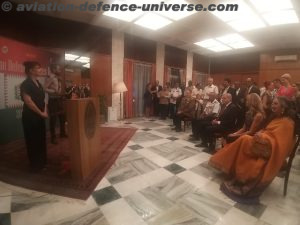 Hungary possesses internationally competitive resources yet to be exploited for both industrial capabilities and the scientific-technological base. Defence-related research & development projects should immediately be launched with regard to niche military technological platforms addressing several current and likely future challenges; those already started will be continued.
Hungary possesses internationally competitive resources yet to be exploited for both industrial capabilities and the scientific-technological base. Defence-related research & development projects should immediately be launched with regard to niche military technological platforms addressing several current and likely future challenges; those already started will be continued.
Bilateral and multilateral cooperation will create synergies that can further advance the development of the defence industry. Hungary acknowledges that the defence industry serves as one of the pillars of guaranteeing European security, and that the participation of the Hungarian defence industry in international cooperation frameworks is vital to our national interest. This explains why Hungary is actively involved in the establishment and strengthening of the European technological and defence industry base, and why it strives to decrease fragmentation between Member States. Such efforts undertaken within both EU and NATO frameworks will be monitored and utilised in order to make the most of opportunities for the Hungarian defence industry. Hungary considers the exploitation of regional cooperation possibilities, and the creation of synergies with our partners, to be of key importance. Hungary seeks to align the developmental directions of the domestic defence industry with the general trends of EU industry policy and activities, and to integrate our defence industry within the international industry environment as deeply and broadly as possible.
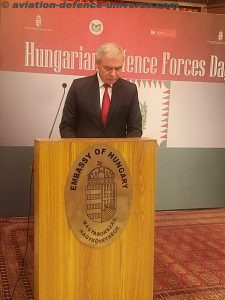 The allocation and efficient use of resources for the defence sector, in proportion to the performance of the national economy itself, is a crucial prerequisite for the development of the armed forces. The amount spent on defence and the conditions set forth for long-term planning by political decisions determine the availability of resources. These allocate an ever-increasing budget to the modernization of the armed forces and, in line with the commitment made by the Alliance,[6] ensure that defence spending hits 2% of GDP by 2024 at the latest and stays at or above that level in the years that follow. Already, modernization costs account for more than 20% of our defence budget. Because of the aforementioned, a sizeable budget is currently and will continue to be available for the Hungarian Defence Forces’ capability development. As per the Government’s consistent practice since the inception of the Zrínyi Programme, additional resources may be allocated beyond the limits specified by the corresponding budgetary law to facilitate developments and adjust to the constantly evolving security landscape.
The allocation and efficient use of resources for the defence sector, in proportion to the performance of the national economy itself, is a crucial prerequisite for the development of the armed forces. The amount spent on defence and the conditions set forth for long-term planning by political decisions determine the availability of resources. These allocate an ever-increasing budget to the modernization of the armed forces and, in line with the commitment made by the Alliance,[6] ensure that defence spending hits 2% of GDP by 2024 at the latest and stays at or above that level in the years that follow. Already, modernization costs account for more than 20% of our defence budget. Because of the aforementioned, a sizeable budget is currently and will continue to be available for the Hungarian Defence Forces’ capability development. As per the Government’s consistent practice since the inception of the Zrínyi Programme, additional resources may be allocated beyond the limits specified by the corresponding budgetary law to facilitate developments and adjust to the constantly evolving security landscape.
“In the current war-torn neighbourhood, Hungarians depend even more on your service to protect our nation and our families. We are proud of you and ask that you always remember your oath to serve the homeland “to the death” and set an example for your daily service by looking to your courageous forebears. The message posted on the Sándor Palace website said, God bless the Hungarian Defence Forces and the privates!”














